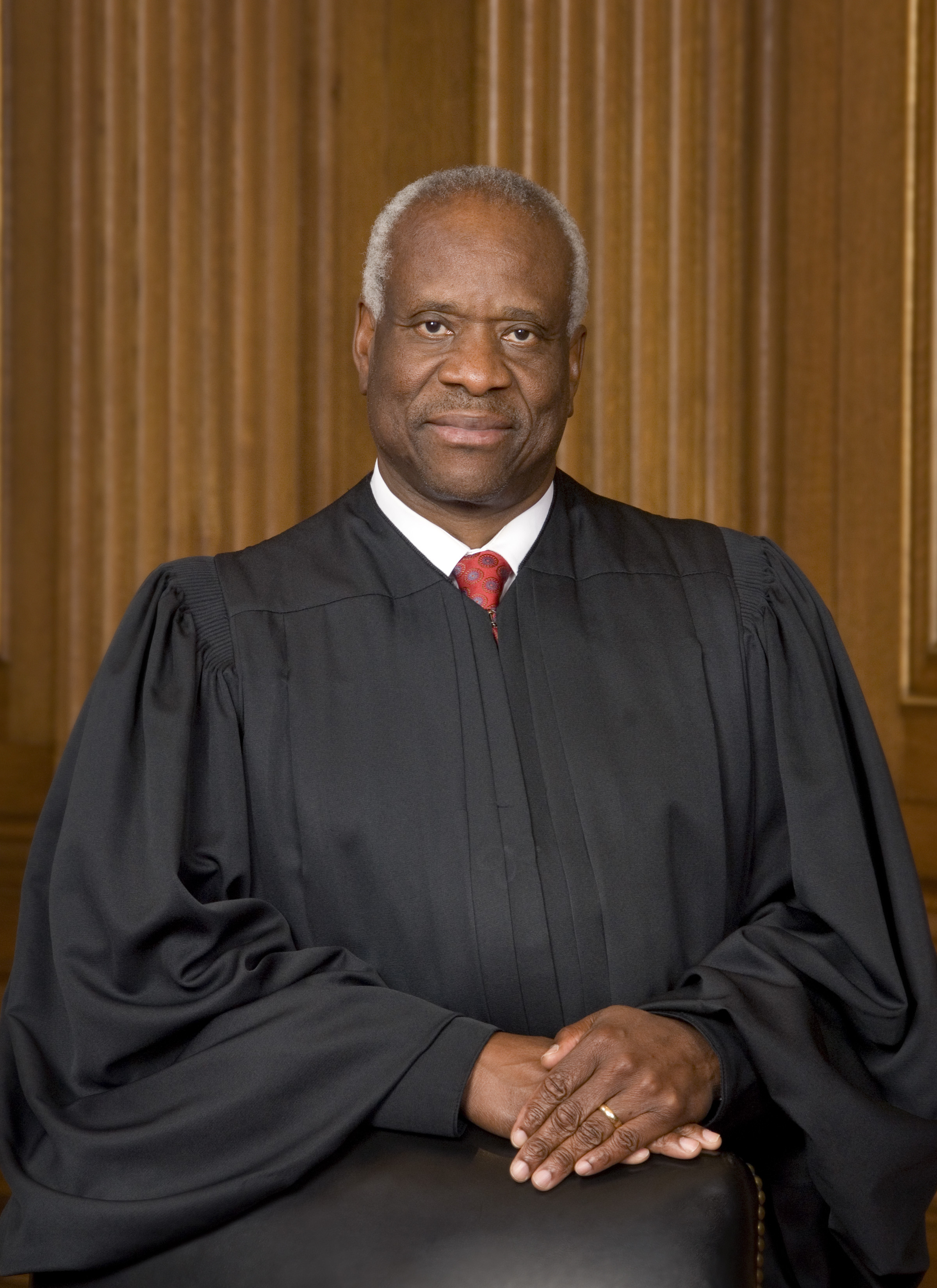1990s, I Am a Man, a Black Man, an American (1998)
Контексте: I agree with Ralph Ellison when he asked, perhaps rhetorically, why is it that so many of those who would tell us the meaning of Negro, of Negro life, never bothered to learn how varied it really is. That is particularly true of many whites who have elevated condescension to an art form by advancing a monolithic view of blacks in much the same way that the mythic, disgusting image of the lazy, dumb black was advanced by open, rather than disguised, bigots.
Томас, Кларенс: Цитаты на английском языке
“I come to state that I'm a man, free to think for myself and do as I please.”
1990s, I Am a Man, a Black Man, an American (1998)
Контексте: I have come here today not in anger or to anger, though my mere presence has been sufficient, obviously, to anger some. Nor have I come to defend my views, but rather to assert my right to think for myself, to refuse to have my ideas assigned to me as though I was an intellectual slave because I'm black. I come to state that I'm a man, free to think for myself and do as I please.
Obergefell v. Hodges http://www.supremecourt.gov/opinions/14pdf/14-556_3204.pdf (26 June 2015).
2010s
Контексте: The Court's decision today is at odds not only with the constitution, but with the principles upon which our Nation was built. Since well before 1787, liberty has been understood as freedom from government action, not entitlement to government benefits. The framers created our constitution to preserve that understanding of liberty. Yet the majority invokes our Constitution in the name of a 'liberty' that the framers would not have recognized, to the detriment of the liberty they sought to protect. Along the way, it rejects the idea—captured in our Declaration of Independence—that human dignity is innate and suggests instead that it comes from the Government. This distortion of our Constitution not only ignores the text, it inverts the relationship between the individual and the state in our Republic. I cannot agree with it.
Concurring in Adarand v. Pena, 515 U.S. 200 http://caselaw.lp.findlaw.com/scripts/getcase.pl?court=US&vol=000&invol=U10252&friend=oyez (1995).
1990s
Контексте: [I disagree] that there is a racial paternalism exception to the principle of equal protection. I believe that there is a 'moral [and] constitutional equivalence,' between laws designed to subjugate a race and those that distribute benefits on the basis of race in order to foster some current notion of equality. Government cannot make us equal; it can only recognize, respect, and protect us as equal before the law.
“I am a man, a black man, an American.”
1990s, I Am a Man, a Black Man, an American (1998)
Контексте: Despite some of the nonsense that has been said about me by those who should know better, and so much nonsense, or some of which subtracts from the sum total of human knowledge, despite this all, I am a man, a black man, an American. And my history is not unlike that of many blacks from the deep South. And in many ways it is not that much different from that of many other Americans.
1990s, I Am a Man, a Black Man, an American (1998)
Speech to the American Enterprise Institute for Public Policy Research, 2 February 2001.
2000s
1990s, I Am a Man, a Black Man, an American (1998)
1990s, I Am a Man, a Black Man, an American (1998)
1990s, I Am a Man, a Black Man, an American (1998)
Page 105
2000s, (2008)
Interview with Steve Kroft https://web.archive.org/web/20140611214639/http://www.cbsnews.com/news/clarence-thomas-the-justice-nobody-knows/ (September 2007).
2000s
1990s, I Am a Man, a Black Man, an American (1998)
Pages 116-117
2000s, (2008)
1990s, I Am a Man, a Black Man, an American (1998)
1990s, I Am a Man, a Black Man, an American (1998)
1990s, I Am a Man, a Black Man, an American (1998)
1990s, I Am a Man, a Black Man, an American (1998)
1990s, I Am a Man, a Black Man, an American (1998)
1990s, I Am a Man, a Black Man, an American (1998)
Page 62
2000s, (2008)
1990s, I Am a Man, a Black Man, an American (1998)
1990s, I Am a Man, a Black Man, an American (1998)
1990s, I Am a Man, a Black Man, an American (1998)
1990s, I Am a Man, a Black Man, an American (1998)
1990s, I Am a Man, a Black Man, an American (1998)
